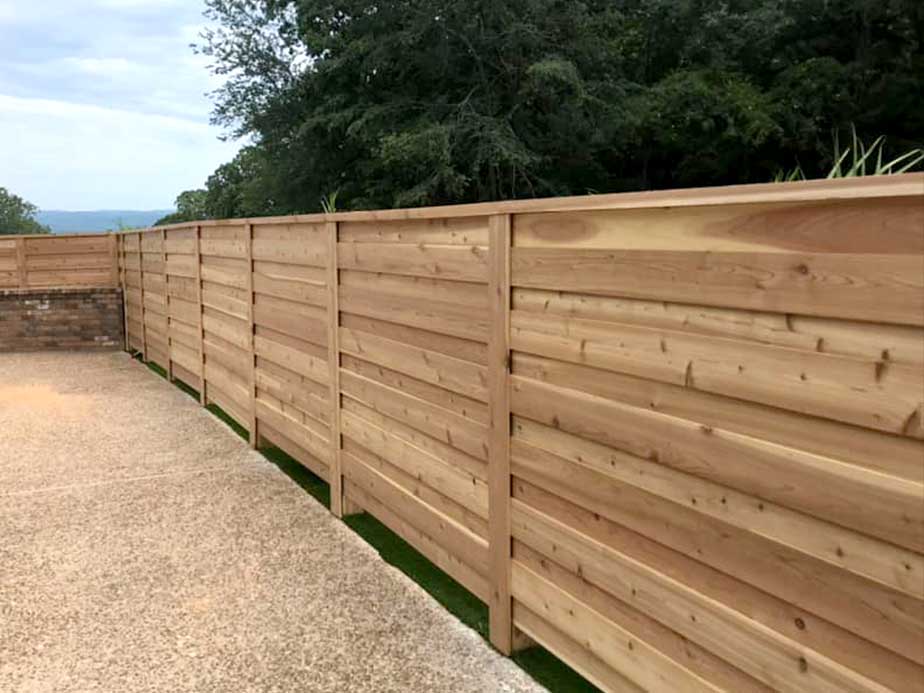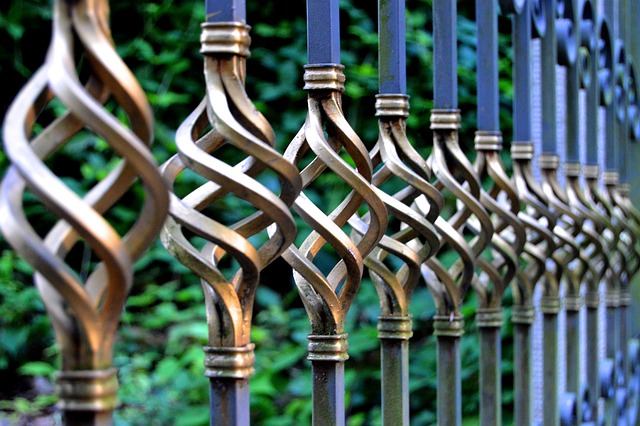All Categories
Featured

Amongst the most popular alternatives, wood, plastic, and aluminum each offer distinct advantages and drawbacks. Here's a failure of the pros and cons of these 3 common fencing products.
Wood Secure Fencing. Timber fence has actually been a timeless option for home owners due to its natural charm and versatility.
Pros:. Visual Appeal: Wood offers a classic and warm appearance that enhances a range of building designs. Personalized: It can be painted, tarnished, or cut right into unique styles to match individual choices. Cost-Effective: Initially, wood fence can be a budget friendly choice compared to other products. Eco-Friendly: Wood is a sustainable source and can be sustainably sourced. Disadvantages:. High Upkeep: Timber needs regular sealing, discoloration, or painting to stop rot, insect damages, and weathering. Longevity Problems: Without correct care, wood can warp, fracture, or degeneration over time, specifically in locations with high moisture. Much shorter Life-span: A wood fencing typically lasts 10-20 years, depending upon the kind of wood and level of maintenance. Wood is excellent for those that value a typical look and want to devote to its upkeep.
Vinyl Fence. Plastic is a modern-day, low-maintenance secure fencing option that has expanded in appeal in recent years.

Pros:. Low Upkeep: Plastic does not need paint, discoloration, or sealing and can be quickly cleansed with soap and water. Weather Resistant: It stands up to extreme weather condition problems without rotting, rusting, or bending. Long-Lasting: Vinyl fences can last 20-30 years with very little maintenance. Variety of Styles: Available in many colors, designs, and appearances, some plastic choices mimic the look of timber. Cons:. Greater Upfront Price: Vinyl secure fencing can be a lot more costly initially contrasted to wood. Brittleness in Winter: In severe chilly, vinyl may break or come to be brittle. Minimal Fixes: Individual panels can be challenging to change, calling for mindful matching to the existing fence. Plastic is ideal suited for home owners looking for a sturdy, low-maintenance solution with contemporary visual appeals.
Aluminum Fence. Aluminum secure fencing is a durable and lightweight alternative, typically selected for its modern look and adaptability.
Pros:. Rust-Resistant: Light weight aluminum does not rust, making it a superb choice for damp or damp climates. Low Upkeep: Calls for marginal upkeep and is simple to clean. Durable: While light-weight, light weight aluminum is strong enough to endure many environmental problems. Lengthy Life expectancy: Can last numerous years without considerable wear or degeneration. Range of Styles: Provides a elegant and sleek look, frequently utilized for decorative or ornamental objectives. Cons:. Greater Price: The first investment for light weight aluminum secure fencing is more than wood or vinyl. Less Privacy: Aluminum fences are commonly designed with open pickets, making them less efficient for privacy. Prone to Dents: Although resilient, light weight aluminum can be dented by solid effects. Light weight aluminum is perfect for those looking for a stylish, resilient option that needs very little treatment.
Making the Right Option. Each fencing material-- plastic, wood, and light weight aluminum-- provides distinctive advantages and drawbacks. Your decision needs to depend on your certain priorities, such as budget, maintenance preferences, environment, and visual goals:
If you love a standard look and don't mind routine maintenance,Choose timber. Go with vinyl if you desire a low-maintenance, weather-resistant fencing with modern appeal. Select light weight aluminum if you focus on resilience, corrosion resistance, and a streamlined design. By considering these benefits and drawbacks, you can pick a fence material that boosts your property while satisfying your useful needs.
Latest Posts
Explore Montclare Auto Repair’s Premier Car Care Solutions and Why Drivers Choose Them
Published May 28, 25
1 min read
Explore Best Auto Repair Care in Chicago – Drive with Confidence
Published May 25, 25
1 min read
Reputable Industrial Roofing Services by Weathercraft
Published May 24, 25
1 min read
More
Latest Posts
Explore Montclare Auto Repair’s Premier Car Care Solutions and Why Drivers Choose Them
Published May 28, 25
1 min read
Explore Best Auto Repair Care in Chicago – Drive with Confidence
Published May 25, 25
1 min read
Reputable Industrial Roofing Services by Weathercraft
Published May 24, 25
1 min read